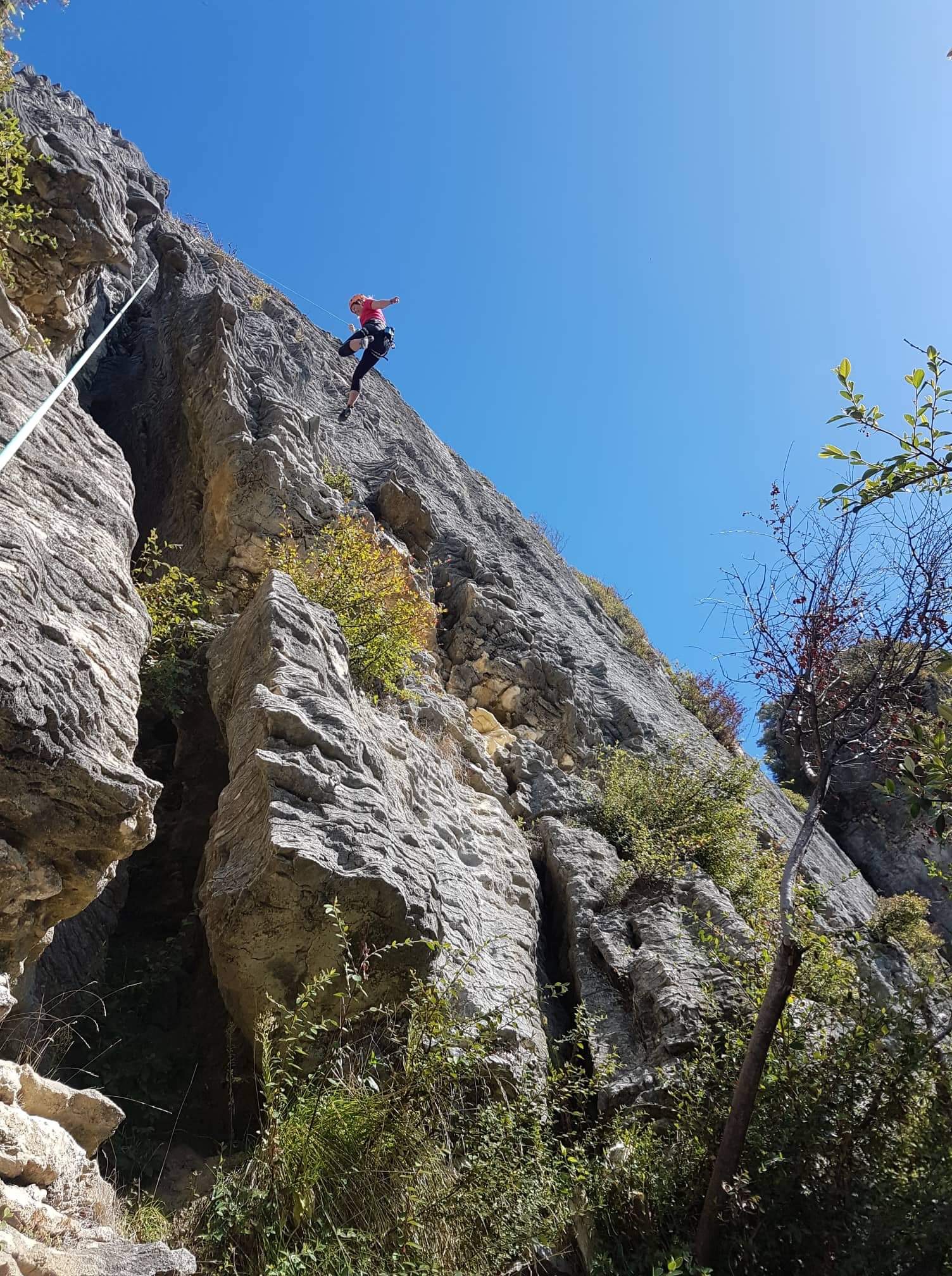Feeling fear is bad for you, and should be avoided at all costs. That’s what you’ve been told, anyway. It’s uncomfortable and stressful on the body, and instead, you should be focusing on bringing more calm, peace, and happiness into your life. Sounds good, right?
So how can experiencing fear actually be good for us, when it feels so bad? Fear is essential for your personal and professional development. Without it, you’ll stagnate.
Fear helps build your confidence and competence
The first time I ever went rock climbing, I thought it would be something I did once to impress a boy and never do again. He was cute, so I wanted to impress him with my fearless bravery and natural wilderness skills. For the record, I was neither brave nor did I have wilderness skills…
We went to a local spot in the hills near our town, and he put me in a harness, helmet and tied me in. Ok, this is happening. I’m going up. The first few moves were easy. But after a few minutes, as the ground got further and further away, the whole thing started to seem like the worst idea I’d ever had. I froze about halfway up the wall, my head was throbbing, my chest exploding.
“This is so STUPID! Why would anyone want to put themselves in danger like this? What if I fall? What if I DIE??”
I looked down to the ground and then up to the top anchor, which was only a couple of meters away. I didn’t want to give up, so after about half an hour of ‘resting’ (aka procrastinating), I kept going and finally made it to the top.
Coming down to the ground after reaching the top of that very first climb, I felt invincible. I felt brave. If I could do that, I could do ANYTHING.
My self-confidence soared and I was filled with a sense of accomplishment, unlike anything I’ve ever experienced before.
I had done something that genuinely terrified me. I had overcome that fear, and I had done it. I felt a new kind of competence and confidence that only comes from doing things that scare us, challenge us and that we overcome.
Elenor Roosevelt was onto something when she said: “Do one thing every day that scares you.”

The Science Behind Fear
Your brain needs new challenges to keep up to date. It’s how it grows, learns new things and gathers new information to help it keep you alive.
Neuroplasticity is the brain’s ability to change its neural pathways based on new information. Without challenging yourself you deprive your brain of this opportunity to improve.
Essentially, without experiencing challenges and fear, you don’t grow.
There are many scientific benefits to experiencing fear, from temporarily boosting your immune system to losing weight to stress relief. When you’re scared, your body releases a surge of adrenaline, dopamine, endorphins, oxytocin and serotonin all designed to help you work better, faster and smarter.
But building your self-confidence and gaining a deep feeling of empowerment is by far the best benefit to experiencing fear and regularly challenging yourself physically.
So, does this mean you should throw your meditation practice out the window and become a professional rock climber instead? Of course not.
Striking A Balance
Even though experiencing fear and challenges are essential to your personal and professional growth, balancing these with times of peace and relaxation is just as important. Overdosing on adrenaline by constantly putting pressure on your nervous system is not sustainable or healthy, and there are times in your life and daily routine when you need to stop and rest.
For most of my 20s, I experienced crippling Chronic Fatigue Syndrome (CFS) and Insomnia in the wake of the 2011 Christchurch Earthquakes and a particularly nasty virus. During those years, I put what little energy I had into healing my body gently – meditation, yin yoga, naps and slow, mindful living. I avoided any kind of stress on my nervous system and adrenals, and cultivating peace and calm were key to my healing. Now that I am fully recovered, I’m able to use physical and mental challenges like rock climbing and running my own digital advertising agency as ways to experience healthy levels of fear and build my confidence and resilience.
As professional climber Tommy Caldwell said in his book ‘The Push: A Climber’s Journey of Endurance, Risk, and Going Beyond Limits’ – “Life is all about risk and reward. Better to have struggled, to have tried, than to not have seized an opportunity at all.”
You are capable of doing great things… you just have to get comfortable with being uncomfortable.


